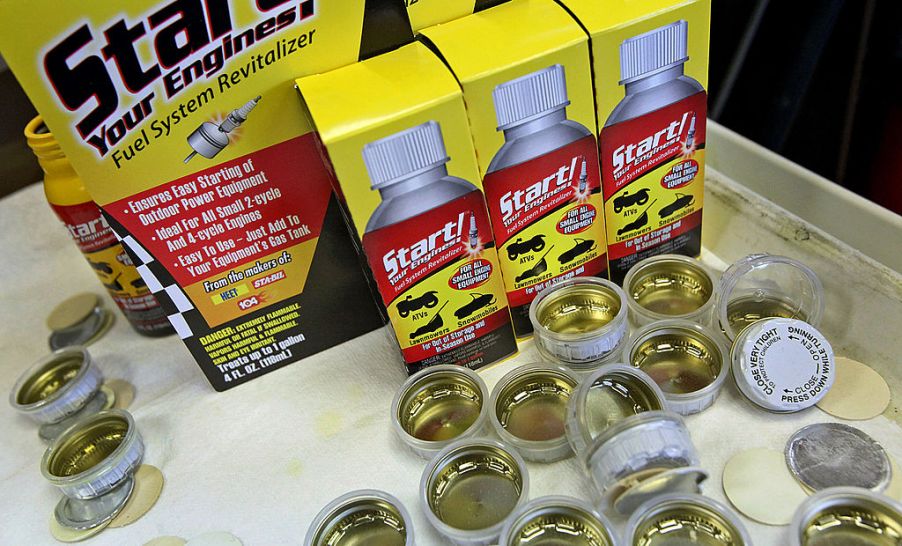
What Are Fuel Additives and Do They Work?
There are a wide variety of fuel additives on the shelves of parts stores these days, and you won’t be surprised to find out that some of them are pure snake oil. Sorting through the marketing gimmicks to find the truth can be tricky, so here are some guidelines to help you determine what fuel additive you may need, and which one is going to be the most effective.
Of the four major types of fuel additives listed in this Advance Auto Parts article, the ones you’re most likely to encounter at the parts store are octane boosters and fuel injector cleaners. Fuel stabilizers are generally used for non-automotive applications, such as boats and lawn equipment, that are likely to sit for months at a time between uses.
All octane is good octane?
Octane boosters may sound like they’ll give you a hot-rod in a bottle, but there’s more to it than that. Octane rating is simply a measure of a fuel’s resistance to knock. The higher the rating, the greater the resistance to knock at specific conditions. This is why premium, 93 octane fuel is recommended for high-performance or boosted applications. More severe conditions inside the engine require greater resistance to knock.
So, does your low compression, 6-cylinder minivan need an octane booster to drive to the office? Probably not. But if you want to give it a whirl, a tank of premium every now and then can give you the same effects, and likely has better detergents already in it from the pump.
On the other hand, if you let your buddy borrow your turbo WRX STi for a night out and he fills it with 87, you can always toss in a bottle of octane booster for good measure before telling him the next time he can tough it out in his ’88 Tempo.
Are my injectors dirty?
Well, maybe. Injector cleaners are widely marketed as quick-fix solutions to rid your engine of ‘harmful sludge’ and immediately improve gas mileage.
The truth is, there is always going to be ‘sludge’ of some type in the fuel system. If your injectors are so encrusted with filth that their spray pattern has less coverage than a bad toupée, then you may benefit from an additive, and as a result, see some slight increase in mileage.
In all likelihood, any mileage increases will be unnoticeable, if present at all. Most modern gasoline brands have a pretty good mix of detergents, and as long as you stay away from sketchy, no-name gas stations you should be okay.
How can I get better mileage?
Fuel additives are not necessary to get better mileage out of your car. In fact, the best measures you can take to increase mileage are not only easy, but they’re also free.
Check your tires
The first step to better mileage? Check the air pressure in your tires. Under- or over-inflated tires can not only lead to uneven and premature tire wear, but it can also reduce your mileage significantly. Check the owner’s manual and make sure you have the correct pressure in your tires.
Slow down
Simply driving slower, or accelerating less briskly, can lead to the biggest improvements you’ll ever see in gas mileage. This may mean leaving the house earlier so you’re less rushed or just initiating fewer drag races from stoplights. Tailgating is another bad practice for good mileage, as it requires you to brake far more often, and consequently accelerate more often. Driving at a steady, even pace is far more efficient. Don’t be afraid to coast.
Know what you’re looking for when it comes to fuel additives and you won’t be disappointed if they don’t meet your expectations. If it’s better mileage you’re after, the real secret is in your right foot. Drive accordingly.


